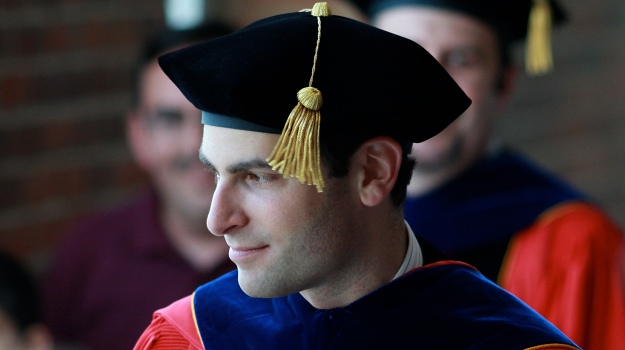Overview
Our program offers two tracks of graduate degrees:
- Professional Masters Track - typically for part-time students who are working professionals looking to switch fields or to improve their understanding of the state of the science.
- MS/PhD Track - typically for full-time students who work intensively with an advisor within the department to complete a significant research project during the course of their degree. This track requires completing core coursework and passing the department's comprehensive examination process.
Students from a wide variety of backgrounds are encouraged to apply: We accept students with a bachelor's degree in meteorology, oceanography, physics, chemistry, engineering, mathematics, biology, or other programs with suitable emphasis on science.
The university requires a minimum undergraduate GPA of 3.0 (out of 4.0) for financial aid. Our department offers fellowships, research assistantships or teaching assistantships to the most qualified applicants on the MS/PhD track.
To apply for a NSF Graduate Research Fellowship click here.
Strengths
Academics
The National Research Council's 2010 ranking of PhD programs places the department firmly in the top ten Earth Science programs nationwide and higher than any other institution on the East Coast.
Students are able to collaborate with and learn from experts from nearby research institutions and government agencies. Professors often invite guest instructors to deliver lectures on the latest techniques, algorithms & model developments.
Research
The Department is particularly strong in Atmospheric Chemistry and Air Pollution, Mesoscale to Global Numerical Weather Prediction, Data Assimilation, Earth Sciences and Climate, Physical Oceanography, Remote Sensing, and Dynamics with Predictability.
These strengths are reinforced by strong collaborations leading to joint research topics with NASA Goddard Space Flight Center, Maryland Departments of the Environment and of National Resources, the National Centers for Environmental Prediction (NCEP) of the National Weather Service, the NOAA Satellite (NESDIS) and Air Research Laboratories, all of which are near the campus.
Location
In addition to our proximity to government research institutions, College Park's location near Washington, DC offers the best of both worlds. Our campus provides the benefits ample green space (a sprawling central mall lined with trees and even an eighteen-hole golf course) while the amenities that only a large city can offer (arts, culture, sports, dining) are just a short Metro ride away. Visit the "Where is College Park?" page for more information.
Frequently Asked Questions
Click through the questions below to learn more about the application process.
What are the requirements & how long does it take to complete a PhD?
A complete description of the Graduate Program curriculum can be found on the MS/PhD program page. The average length to complete the Ph.D is about 5 years. Presently there are 62 graduate students enrolled in the AOSC program.
Who are the available advisors & what do they research?
Our list of current faculty is here. They concentrate research in six main areas:
What are some of the research & employment opportunities nearby?
A list of nearby academic institutions & government agencies can be found on our "Where is College Park?" page.
Click here for a complete list of Ph.D recipients during the past 10 years who were either in our department or whose primary advisor was a member of our department.
What type of visa should I apply for if I am an international student?
International students should apply for an F-1 (not J-1) visa.
What if I am a math major & I have not taken any physics courses?
Your math-only background will make some AOSC courses challenging, but the University of Maryland has a reputed applied math and scientific computation program (AMSC, CSCAMM) with strong links to our department. Several graduate students of this program have successfully pursued MS and Ph.D. thesis research in numerical weather prediction and data assimilation, with our faculty as joint/main advisors. To go this route you will apply to the AMSC graduate program, stating your interest in pursuing joint research with AOSC.
